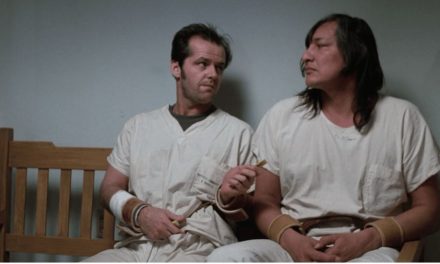Tom Verlaine and Televison’s ‘Marquee Moon’ had a musical muscle that flexed its way into the minds of other guitarists.
Tom Verlaine was a shooting star. He flashed across the skies, caught musicians and artists in the intensity of his light then faded from view to most of the world. He was still there, of course, but further out than most, and certainly away from the glare of the industry. He liked it out there.
But even that is now no more. Verlaine has died, aged 73, after a short illness.
Verlaine’s legacy through his band Television is undisputed Their album “Marquee Moon” is peerless as a debut. Indeed, it is peerless whether it be first, second or last. It is the diamond that was brought to the surface in the rough and ragged time of punk emerging in the 1970s.
When news arrived of Verlaine’s death, I hunted out my album of Marquee Moon and played it. When the needle hit the vinyl, and those first chords came forth, I felt the same sensations as I did when I first played it in 1977. Transfixed and moved. Time fell away and yet the music was still urgent, pressing, going deep.
Marquee Moon, for its time, was unlike anything else. When Television was auditioning for a record contract with the Atlantic label in the mid-’70s, the story goes Atlantic president Ahmet Ertegun turned to (producer) Jerry Wexler and said: “Jerry, I can’t sign this band; this is not Earth music.” He was right.
Two years before, Patti Smith, who was close to Verlaine, had released her masterpiece “Horses” (on which Verlaine had played). But Marquee Moon had a musical muscle that flexed its way into the minds of other guitarists. Just listen to the title track (below).
Verlaine opened the doors of perception on what a song, and a solo, could be. It could be anything, and it didn’t need to be played at the speed of light. It was the symphony within the song, much like how British guitar virtuoso Richard Thompson plays, with build-up, tension and release.
But the solo wasn’t the only thing. There were the songs. As songwriter Robert Forster, writing in the Guardian said: “The song on the record that got the most attention in the music press and fan community was the album’s title track. A 10-minute opus that climbed through many musical stages, a brilliant guitar solo included, to splinter in a rain shower of guitar notes – a kind of punk rock “Stairway to Heaven”.
“The seven other songs on the album rotated in its orbit. Blistering jagged-wired rock numbers. Swooning, tender-hearted ballads. And there was “Venus” (below). Track two, side one. It got me on first listen and stayed my favourite track through the countless times I played the album. It was a pop song, while still containing all the fire and poetic lyricism of the band’s other numbers. It was a great rock song and a great pop song combined.”
PLEASE HELP US CONTINUE TO THRIVE BY BECOMING AN OFFICIAL FOOTYOLOGY PATRON. JUST CLICK THIS LINK.
It also has the line, “I fell into the arms of Venus de Milo.” Wonderful.
There have been scores of tributes to Verlaine, but a few encapsulate his influence.
From Red Hot Chili Peppers’ bassist Flea: “Listened to Marquee Moon 1000 times. And I mean LISTENED, sitting still, lights down low taking it all in. Awe and wonder every time. Will listen 1000 more. Tom Verlaine is one of the greatest rock musicians ever. He affected the way John (Frusciante) and I play immeasurably.”
From REM frontman Michael Stipe: “I have lost a hero. Bless you Tom Verlaine for the songs, the lyrics, the voice! And later, the laughs, the inspiration, the stories, and the rigorous belief that music and art can alter and change matter, lives, experience. You introduced me to a world that flipped my life upside down. I am forever grateful.”
Super producer Steve Albini: “Beautifully lyrical guitarist, underrated vocalist. Television made a new kind of music and inspired new kinds of music. Marquee Moon is a perfect record.”
Steve Wynn (Dream Syndicate): “He was my guitar hero at a time when I needed one most. I spent the entire year of 1981 practising daily to Marquee Moon. Tom Verlaine’s soloing (and Richard Lloyd’s as well, of course) showed me you could be a virtuoso and dangerous at the same time, more Coltrane or Ornette than the arena rockers of the day. It was revelation.”
In the nature of the shooting star, Television would release one more album, Adventure, and then go their own ways – well until 1992, when they released a third album, and then sporadic concerts notwithstanding went their own ways again. Verlaine released a clutch of solo albums in the 1980s. And then for the past generation, for most people, he floated away, travelling in different orbits, again except for the sporadic concerts and appearances.
Verlaine’s last album was the meditative instrumental “Around”. It was poetry without the words, which seems particularly apt. Tom Miller changed his name to Verlaine when he moved to New York. He had been working at a second-hand book store. “People kept throwing 50-cent books at me, saying, You should read this,” he has said. One of the books was by poet Paul Verlaine.
On hearing of Verlaine’s death, Sonic Youth’s Thurston Moore wrote: “Went by the book stalls outside Strand yesterday thinking I’d see you as usual, have a smoke, talk about rare poetry finds for a couple of hours, downtown NYC racing by our slow meditations on music, writing – gonna miss you Tom.”
Or as Patti Smith wrote: “Farewell Tom, aloft the Omega.”
That shooting star, aloft, now truly has gone, and the darkness has doubled.











